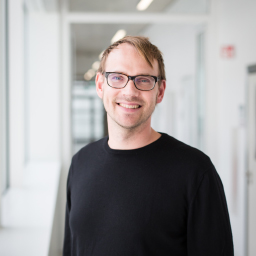
christian.behrends[at]
mail03.med.uni-muenchen.de
After hypothesis-driven research on chaperones and aggregation-prone proteins in the Hartl group and explorative screening on autophagy in the Harper lab, Christian sought to combine these two approaches when he started his own group in 2010 at the Goethe University. After setting up proteomics and high-content imaging platforms at the IBC2, he focused on exploring the cellular components that drive or regulate autophagy and that are subject to autophagosomal degradation. Within this framework, the ubiquitin system gained particular attention. In 2016, Christian returned to Munich and neurodegeneration by joining the Munich Cluster of Systems Neurology.
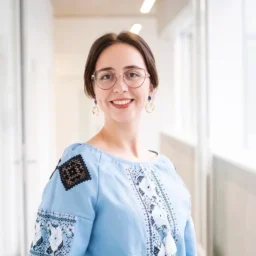
alina.barabash[at]
mail03.med.uni-muenchen.de
Alina is a new biotechnological assistant who joined our group in 2024. She was originally from Ukraine and completed her Bachelor of Engineering in Biotechnology at the National Aviation University, Kyiv in 2022. Not only is she passionate about mastering new techniques, but she also applies them quickly. She takes charge of organizing everything in and around the lab. While she remains the calm and dependable pillar of the team, she is great to be around. She is always eager to assist her teammates and quickly responds to any inquiries.
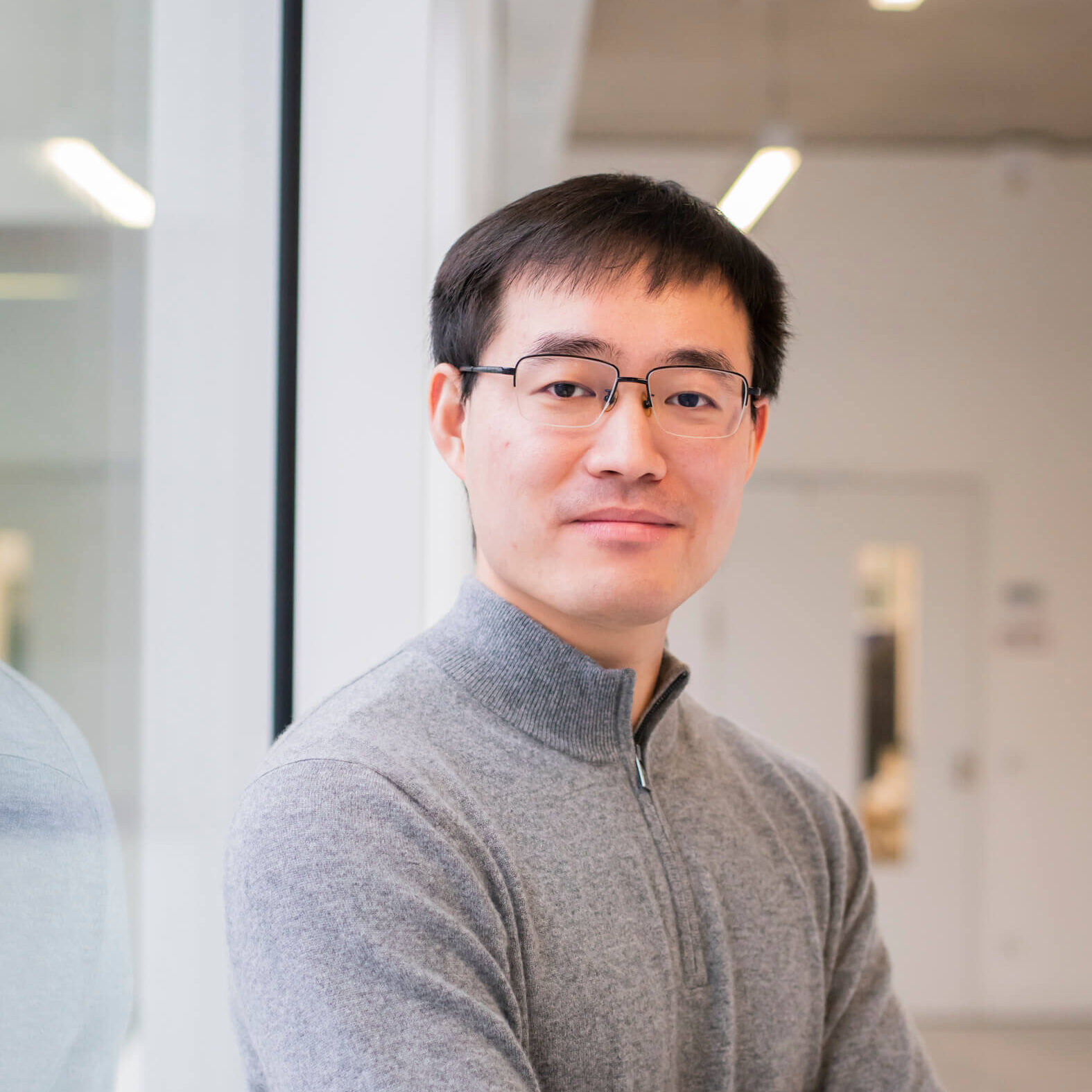
yang.chi[at]
mail03.med.uni-muenchen.de
Chi Yang, comes from China. During his master’s degree at Anhui Medical University from 2019 to 2022, he conducted clinical and basic research on brain tumors. After finished his residency training, he became a neurosurgeon at The Second Affiliated Hospital of Anhui Medical University. In addition to brain surgeries, he is also interested in the research of nervous system diseases. In 2024, he joined our research group to continue his PhD study. Currently, his research topic is mainly identifying molecular response to lysosome damage in brain under (patho)physiological conditions.
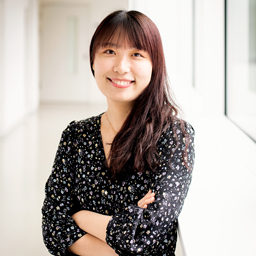
lizhen.cheng[at]
mail03.med.uni-muenchen.de
Lizhen, originally from China, achieved her Master’s degree in Medicine from Shanghai Jiao Tong University. During her postgraduate studies, she conducted research on the therapeutic effects of activating autophagy through TFEB to clear Alzheimer-like pathology in diabetic encephalopathy. Furthermore, she was involved in clinical research centered on the early detection of Alzheimer’s disease, with a specific focus on the early deposition of amyloid-β. In October 2022, Lizhen commenced her PhD study and became a part of our research group. Currently, she is primarily focused on systematically defining autophagy cargo of microglia.
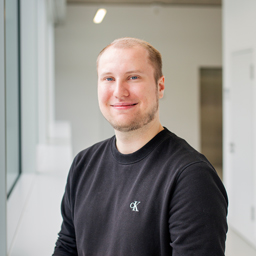
jerome.duschek[at]
mail03.med.uni-muenchen.de
Before starting his PhD, Jerome obtained both his bachelor’s and master’s degree in Biological Sciences at the University of Konstanz focusing on biochemical pharmacology and oncology. During his master studies, he specialized in Disease Biology and conducted his master thesis on transcriptional interaction networks and the modulation of nuclear receptors in response to fatty acids and retinoids. In Mai 2023, Jerome started his PhD in our group, where he is aiming to identify and characterize novel ubiquitin-fold modifier-1 (UFM1) substrates as well as to determine the physiological function of UFMylation.
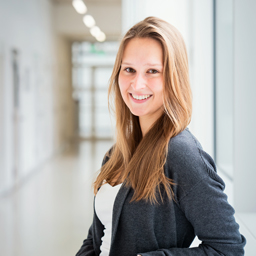
Before her PhD studies, Alina obtained her Master’s degree in neurobiology at the Georg-August University in Goettingen. She conducted her Master’s thesis at Harvard Medical School, MA, USA (Sahin lab), where she explored the consequences of CDKL5 loss in primary rodent neurons and neurons from patient-derived iPSCs using high throughput screens. In 2021, she got admitted to the IMPRS for Molecular Life Sciences and started as a shared PhD student in the Behrends and Harbauer(MPI for Neurobiology)labs. In her PhD project, Alina investigates the process of damage induced mitophagy in neurons to gain further insight in molecular processes causing neurodegenerative diseases.
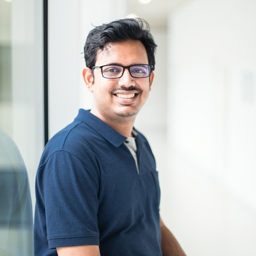
rahul.chakraborty[at]
mail03.med.uni-muenchen.de
Rahul earned his PhD from CSIRInstitute of Genomics and Integrative Biology in New Delhi, India, in 2022. During his doctoral studies, he was interested in learning about the involvement of a t-RNA methyl transferase in cysteine stress. He also wanted to know how a yeast cell survives when it is exposed to high quantities of cysteine, homocysteine, and S-adenosyl homocysteine, which causes metabolic stress. In March 2022, he began working as a postdoctoral researcher in our lab, where he is studying Rab24’s unique role in mitochondrial fission and protein secretion.

alina.liebisch[at]
mail03.med.uni-muenchen.de
Alina obtained her bachelor’s degree in Biology from the Rheinische-Friedrich-Wilhelms University of Bonn focusing on neurobiology and -anatomy. Due to her interest, she continued her studies at the Heinrich-Heine University of Düsseldorf in the master’s program Translational Neuroscience. She performed her master’s thesis externally at the Ludwigs-Maximilians University Munich in the Clinical Neuroimmunology department, investigating the role of the reticulospinal tract in the functional recovery following spinal cord injury. Alina started her PhD and joined our group in August 2021 and is mainly interested in dissecting autophagy cargo delivery mechanisms.
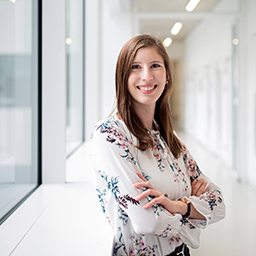
sophie.levantovsky[at]
mail03.med.uni-muenchen.de
Sophie studied Biochemistry at the Technical University of Munich (TUM) focusing on immunology and oncology during her master studies. After a voluntary research internship in metabolomics at the department of biomolecular mass spectrometry and proteomics (Heck lab), Utrecht University, Netherlands, she joined our group for her Master’s thesis. Her project focused on the identification of novel ufmylation targets using denaturing AP-MS and proximity proteomics. In November 2020, Sophie started her PhD and is now aiming for a better understanding of the molecular response to endolysosomal damage and its regulation by ubiquitylation.
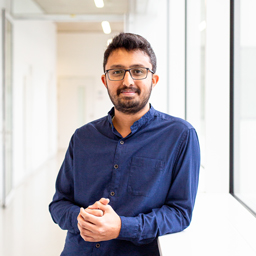
sankarshana.nagaraja[at]
mail03.med.uni-muenchen.de
Sankarshana obtained his master’s degree in biochemistry from the University of Mysore, Karnataka, India. Following this, he went on to pursue a research internship at the Max Planck Institute of Biophysics (Martin Beck lab) in Frankfurt focusing on co-translational interactions of nascent polypeptides during protein complex assembly. Due to his interest in cellular quality control mechanisms, he began his PhD in our group in July 2023 where he is currently exploring the canonical and non-canonical functions of Autophagy proteins through biochemical, imaging, and MS-based proteomics methods.
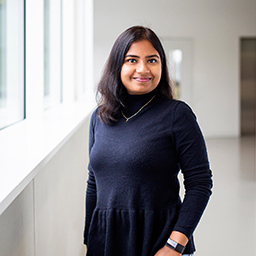
debjani.bhattacharya[at]
mail03.med.uni-muenchen.de
Debjani, originally from Kolkata, India, completed her Master of engineering in Biotechnology from BITS, Pilani, India in 2015. For her Master´s thesis she studied protein phosphatase activity of the tumour suppressor protein PTEN in endocytic trafficking. Drawn by her combined interest in post translational modification of proteins and their role in protein trafficking, she worked as a research assistant in CDFD Hyderabad, India and KU, Leuven, Belgium. With the motivation to study how protein ubiquitination regulates protein trafficking, she joined our group in February 2020 as a Marie Curie early stage researcher and is trying to characterise a protein that acts as a bridge between secretion and autophagy pathways for her PhD.